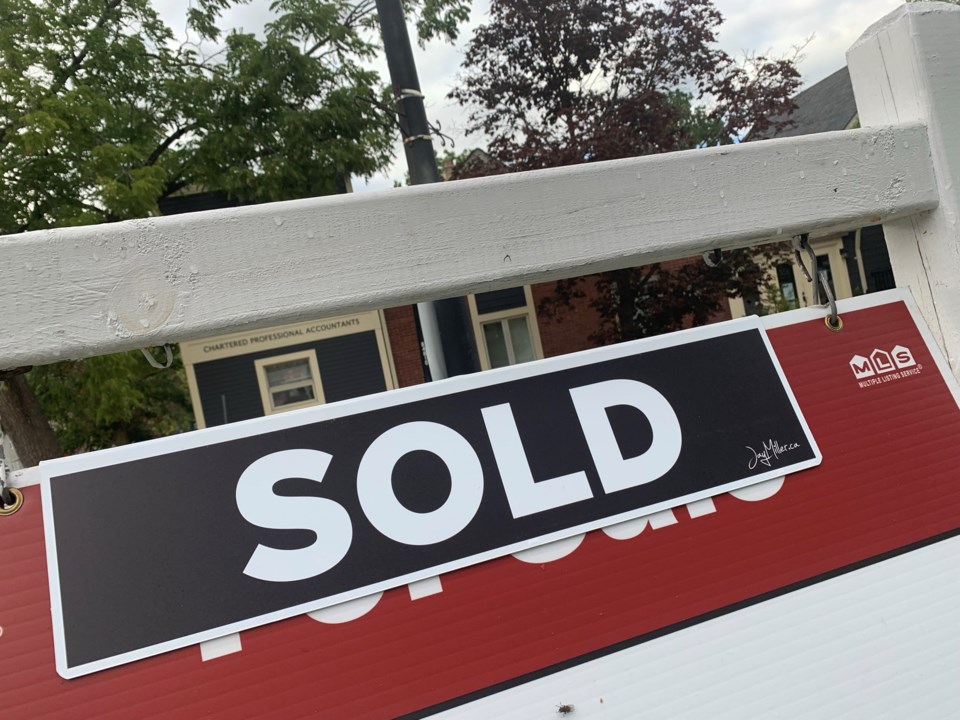In Newmarket, single-income home buyers need 41 more years of saving on average than couples to purchase a home.
According to data gathered by Point2, Newmarket has been labelled a “marathon city” with the amount of time on average it takes a single-income buyer to save to purchase a home. Richmond Hill and Vaughan were also given this distinction.
The data collected follows the 50/30/20 rule — where 20 per cent of the income should go toward savings — and found that in Newmarket it takes the average couple 15 years and eight months to save for a home, while it takes an individual 57 years and one month. Only Richmond Hill, Vaughan, and Markham had a longer average time to save for an individual to purchase a home than Newmarket.
The study found that in Canada, Newmarket has the second biggest difference in time to save for couples vs. individuals behind just Richmond Hill with the difference being 41 years and four months.
The study says that in the 16 cities where the benchmark home price is higher than $1 million, including Newmarket, even a starter home (priced at half the local composite price) seems out of reach.
“Finding a starter home could be the only way for many would-be buyers to get on the property ladder,” the study said. “But that’s also tricky. Finding a starter home is a unicorn hunt in many of Canada’s most populous, in-demand urban centres, making this step another obstacle on first-time buyers’ road to homeownership.”
The data shows a starter home (priced at half the composite) is $590,400 in Newmarket with the average afforded mortgage by couples being $285,787 and the remaining amount due for couples being $304,613. However for individuals in Newmarket, it shows the average afforded mortgage at $87,411 with $502,989 being the remaining amount due.
“No matter how motivated the buyers, they need a higher income to save faster. But, the cities where they can earn more also have the most expensive homes,” the study said. “Being in a relationship or pooling money with a friend doesn’t help either.”
The study says that although a couple could save faster, they’d also need a bigger home than an individual seeking to buy a home.
“Nowhere was this more obvious than in some of Canada’s most expensive real estate markets (including Newmarket),” the study said. “In these cities, home prices were somewhere in the stratosphere, but incomes were more down to earth than both singles and couples looking for property would like them to be.”
According to the study, given the high home prices and the not-high-enough incomes in these cities, the amount that buyers would need to cover after securing a loan would still be prohibitive.
“This would significantly limit first-time buyers’ options, especially in cities where home prices have crossed the $1-million mark — and are still rising,” the study said. “Unsurprisingly, these were also the cities where potential homebuyers on a single or couple income would encounter the most discouraging hurdles.”
The national average in time to save for couples is three years and nine months and for individuals it’s 28 years and eight months.
On the other end of the spectrum, the study found that Strathcona County, AB; Lévis, QC; and Regina, SK were the opposite of marathon cities and have been tabbed as fast-lane cities.
“This means the affordability gap between single buyers and couples was the smallest, and buyers would have almost equal chances at becoming owners, no matter their status,” the study said. “Given the different loan and insurance conditions, as well as the more affordable starter home prices, single buyers would need less than three years to gather the money.”
The average time it takes couples to save in the top 10 cities with the smallest difference in years needed to save is less than 2.5 years, and it takes individuals less than 7.5.
The study said that these cities showed that, under the right conditions, homeownership wouldn’t just be possible for both single homebuyers and couples looking for a home, but that both would be able to achieve it in a reasonable amount of time.
For this study, Point2 took into consideration the 70 largest Canadian cities, according to the most recent population data from StatCan.



